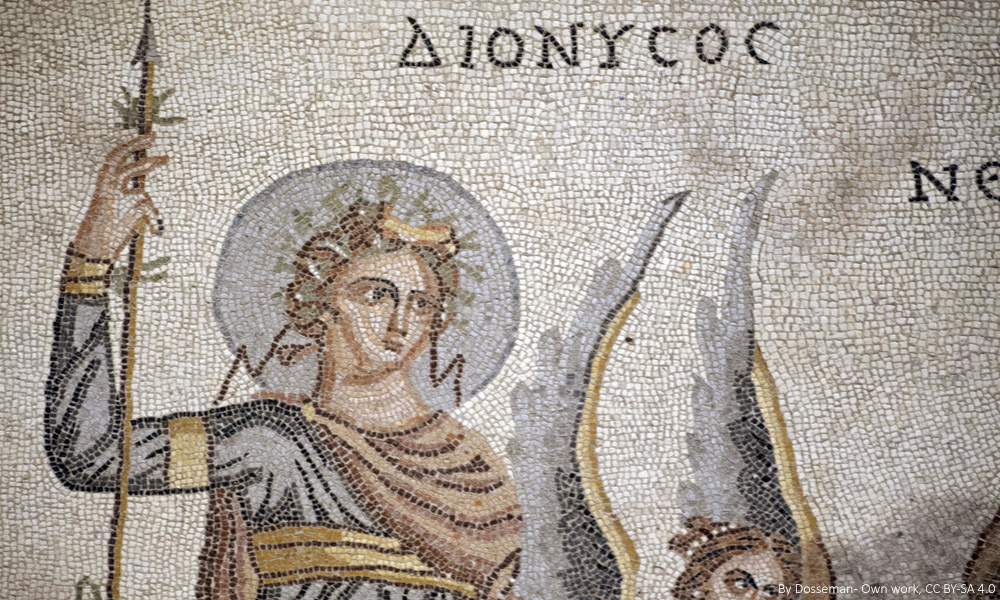
This article puts forth various tools or methods by which Christian claims and doctrines may be evaluated, and gives the reader advice for developing critical and independent thinking skills.
Introduction: Escaping the Spin and Gaining Perspective
Christianity is, above all, a religion of doctrine and belief. It is the only world religion I know of in which its adherents believe that incorrect belief will deny you salvation. And so, Christian preachers and missionaries are always hounding potential converts, telling them what they have to believe in order to be saved. And the arguments they give certainly sound pretty convincing; how do you escape the Christian spin machine and get some perspective and clarity on the Christian religion and what it has to offer? Even though the Christian preacher or missionary may be telling you that Christianity offers the only path to salvation and a happy hereafter in heaven, perhaps the truth may be that another religion, or at least another branch of Christianity, might be a better fit for you, and more in line with your true heart and mind. In evaluating Christian claims and doctrines, there are four main tools, or methods, you can use. These are: history, or the historical method; Scripture, both canonical and extra-canonical; science and natural law; and logic, reason and philosophy, or a systematic rational inquiry into Christian doctrines and beliefs. Let’s investigate these methods and what they have to offer:
History, or the Historical Method
A religion, which could also be called a religious tradition or a faith tradition if you prefer, is, after all, a tradition or system of beliefs, doctrines and practices that originated, grew and developed over a period of time. It didn’t come from nothing or arise out of nowhere, and it certainly wasn’t something that was simply handed down from God on high. And yes, I am also including the Christian religion in this statement – there’s no Christian exceptionalism here. The Christian exceptionalist belief that Christianity is a religion that is uniquely of God, in contrast to all other world religions, which are seen as being merely of man, falls apart upon closer scrutiny of the historical events and circumstances surrounding its origins, growth and development. And Christianity did not arise in a vacuum, but rather, it was influenced by the larger geopolitical forces of the day. It was also heavily influenced by other religious and spiritual movements of its day – in other words, Christianity was a product of the world it grew up in. The sad truth is that most atheists and agnostics have a better knowledge and understanding of the historical facts surrounding Christianity than the vast majority of believing Christians today.
The birth of a religion, especially a great world religion like Christianity, is seldom a simple affair, and is usually a lot more nuanced and complex than the official story that believers are asked to believe. There are also historical events and circumstances leading up to the birth, which could be likened to gestation or pregnancy – a preliminary latent period, if you will. In Greek mythology, the origin myth of a deity gives important clues to that god or goddess’ true nature; similarly, to truly understand the Christian religion and what it really is, we need to get a clear and objective understanding of the events and circumstances surrounding its birth. By an objective understanding, I mean an understanding of what really happened, which may not be exactly what the religion’s apologists would want you to believe. Lacking this clear and objective understanding of the origins of Christianity, millions of believing Christians are woefully ignorant regarding the true nature and genesis of their own religion.
The same historical method will also work for any particular belief or doctrine of the Christian religion as well; if we want to get a clear and objective understanding of it, we have to know and understand the historical events and circumstances that were responsible for its origins, growth and development into its present form. Through this historical narrative, we can also get an understanding of the doctrine’s chief proponents, and their various motivations for nurturing and promoting it. The arising of a great doctrine or belief usually did not go unquestioned; its arising often represented a crucial crossroads or fork in the road for the developing Christian religion, and there were usually dissenters present who had a different solution to the doctrinal problem, and a different vision for where Christianity should go. These individuals were often vilified as heretics; perhaps a more neutral and objective term for them would be heterodox, in distinction to orthodox, which was the mainstream position, or the position that won the battle. And especially in the Christian religion, history was written by the victors. Nevertheless, being able to weigh and judge the evidence and arguments, both pro and con, is best for a true understanding and appreciation of any Christian doctrine or article of faith.
What emerges from a careful study of the historical origins, growth and development of the major doctrines of Christianity is that they were not handed down directly by God from on high; most of the time, they were decided by assemblies or councils of church bishops and elders, which were convened at crucial crossroads or turning points in the history of the church. So, when a fiery eyed preacher tells you that you gotta believe, and especially if he claims divine sanction for the belief he is preaching, know that he is being unduly presumptuous at best.
Scripture, both Canonical and Extra-Canonical
Christian believers have a lot of strange and often irrational beliefs about their Bible, or Sacred Scripture. And they tend to have a blind faith in the truth and inerrancy of their Bible that is frankly unwarranted. How can every word of Scripture be true when different passages of its holy books can even flat out contradict each other? Certain Protestant denominations claim the doctrine of Sola Scriptura, asserting that Scripture alone is their sole authority in doctrinal matters when the truth is that there are actually two main lines or sources of authority for all Christian denominations everywhere: scriptural and ecclesiastical, or following the decisions of major church councils. The truth is that Scripture does not interpret itself; it needs a human being to read and interpret it – and so, councils of church elders have been convened at times to decide on exactly what the doctrinal interpretations derived from Scripture would be. Modern Christians believe certain doctrines that are not clearly or explicitly stated in Scripture, and on the other side of the coin, they disbelieve certain doctrines that are clearly taught in Scripture.
The Bible is a vast collection of books, which were written by many different authors and scribes, over a period spanning thousands of years. And so, the discerning Bible reader, in addition to reading the actual words of Scripture, also educates himself as to the historical situation and circumstances surrounding a book’s authorship, as well as the particular motivations and editorial agenda of the author. Here again, the historical method applied to Scripture comes in mighty handy. The books of the Bible are considered to be divinely inspired because, for various reasons, committees of church bishops and elders, backed up by the larger community of Christian believers, considered them to be divinely inspired. An actual textual and historical analysis of the various books of the Bible reveals that different books were written for a whole host of different reasons; even their respective levels of divine inspiration can vary considerably, from those that were indeed divinely inspired to those of questionable inspiration and motives. And their authors weren’t always who they said they were.
If one starts from the a priori assumption that the Bible is the infallible and inerrant Word of God, then one also tends to assume that all the Bible’s verses or passages are in harmony with a certain unified divine viewpoint. The truth is that a number of different positions and viewpoints are put forth within the Bible’s different books and verses, and there is no consistency or unanimity of viewpoint or position in the Bible. Every Christian believer has their favorite passages of scripture, and there is a lot of selective “cherry picking” of Bible passages going on, which are put forth by their proponents as “proof texts” to support their beliefs. Yet Jewish rabbis, in their polemics against Christianity, accuse Christian apologists of twisting certain passages from their Old Testament and taking them way out of context; they also come up with “dis-proof texts” to support their Jewish positions where they differ from or contradict the Christian one. Strangely enough, there are even passages from the Christian New Testament that shed dubious or incriminating light on the Christian religion itself, if you know where to look, and how to read and interpret the clues contained within these passages.
If you want to control how your congregation or flock thinks about doctrinal matters, and what they believe, the Christian clergy has found that the best way to do that is to control which books of Scripture they have access to. The 27 books of the New Testament, for example, in addition to being deemed sufficiently authoritative and apostolic, were also selected to conform, in their basic teaching and message, to the theological positions of Paul, who laid the groundwork for all Christian doctrine and belief. And so, if you stick to only the 27 canonical books of the New Testament, you are also stuck within the Pauline “box” or mindset; only a couple of books in the New Testament, the epistles of James and Jude, present viewpoints that are significantly different. If one is to get a broader understanding of the totality of the Christian spiritual tradition in all its various branches, one must go outside the box of canonical scripture to books and literature which, for one reason or another, didn’t make it into the New Testament canon. Examples of extra-canonical books of Christian scripture include the Gnostic Gospels and other books of the Nag Hammadi library; the sectarian books of the Dead Sea Scrolls; the apocryphal and infancy gospels; and the Clementine Homilies and Recognitions.
Even within the more mainstream branches of Christianity, there are large bodies of literature which, even though they are not classified as Sacred Scripture, have nevertheless become revered spiritual classics. These include the patristic writings of the early church fathers, the writings of the Christian saints and mystics, the Eastern Orthodox Philokalia, and so on. In their level of divine inspiration, many of these writings rival the divinely inspired books of the Bible. One must look to the author of the book in question, and his or her level of spiritual realization. The older denominations of Christianity, namely the Roman Catholic and Eastern Orthodox churches, have in their Bibles a collection of intertestamental books, which is collectively referred to as the Christian Apocrypha. These books definitely have their role and place in helping us to gain a broader understanding of the greater Christian spiritual tradition, and the historical background for the genesis of the Christian religion. In short, if you want to get a broader perspective on the Christian spiritual tradition, it is important to supplement your Bible reading with extracanonical and apocryphal books, as well as great Christian spiritual classics.
Appealing to Science and Natural Law
Evangelical Christianity today doesn’t have a great relationship with science; perhaps the best known of these battles between science and Evangelical Christianity is the evolution vs. creationism debate. This antagonism between science and Christianity is nothing new; it was going on in ancient Rome as well, with the Roman intellectuals and intelligentsia calling Christianity a recent superstition. And the ancient Roman world had achieved a remarkable level of science and technology, which would not be equaled or surpassed for over a thousand years after the fall of Rome. Let’s face it – Christianity as a religion is prone to a lot of magical thinking. So if you are a lover of science and a believer in Natural Law, then you might take issue with certain Christian beliefs and doctrines – quite a few of them, in fact. Here’s just a few:
Genetic researchers have mapped out the human genome in considerable detail, but they have yet to find the Original Sin gene – in spite of the fact that Saint Augustine claimed that it was passed down from Adam and Eve.
Many, if not most Christians believe that they will be resurrected in their physical bodies on the Day of Judgment, even after their corpses have been dead and decomposing in the grave for years, even centuries, being food for worms. Yet, how exactly would this happen on a molecular and biological level? Have you ever stopped to ponder this? Paul, in his first epistle to the Corinthians, takes pains to explain that the body is sown, or dies, a natural body, and is resurrected a spiritual body, and that makes a lot more sense.
Many Christians believe in the Rapture – in other words, that Jesus Christ will arrive on the clouds, and all good, believing Christians would be instantly taken out of whatever they were doing and go up to meet Jesus in heaven. But just imagine all the havoc this would cause – Christian airline pilots getting yanked out of their cockpits, leaving all their passengers to crash to their deaths, or Christians driving cars having their cars lose control and crash when they get raptured up to heaven. Can a God that would allow such a thing to happen really be a merciful, benevolent God?
I for one am a firm believer in Natural Law, but I also believe that there are subtle metaphysical laws at work behind the gross physical laws of Nature. But whether on the physical, metaphysical or spiritual levels, I believe in a universe, or God’s Creation, that follows definite orderly laws and principles. Ancient Roman scientists and natural philosophers, responding to what they saw in a lot of emerging Christian doctrine and theology, maintained that a God who capriciously toys with the laws governing His Creation, at His mere whim, is not a God who is worthy of being worshiped. Just ponder that for a while.
Reason, Logic and Philosophy – and Philosophy of Religion
One of my father’s great wisdom sayings, which has stuck with me even to this day, is that, if only people took the time to think things through, there would be a lot less trouble in the world. That process of thinking things through, from beginning to end, is the essence of what philosophy is all about. By thinking things through, one becomes aware of the genesis or foundation of an idea or doctrine, and how inherently sound and tenable it is; on the other end, one becomes aware of its various ramifications and implications, which may not have been apparent at the beginning of the thinking process of philosophical inquiry. Another thing that my father said more specifically about religion, and its beliefs and doctrines, is that usually, if you accept the initial premise of the argument that supports the doctrine, everything else tends to flow in a line of logical argument. But, before you let yourself get boxed in, or put on the linear track of the argument, try to evaluate, on its own terms, just how inherently sound and solid the initial premise is. Does it rely on unspoken axioms or assumptions that may be flawed or faulty, or is the original premise not exactly what it appears to be?
In the early days of Christianity, when the religion was just getting its start, the Greco-Roman philosophers of the day, in the first few centuries of the Christian era, put forth various philosophical objections to the emerging Christian religion and its nascent doctrines. Take the Christian doctrine of the Incarnation, for instance; every good believing Christian knows the following verse from the Gospel of John:
For God so loved the world, that he gave his only begotten Son, that whosoever believeth in him should not perish, but have everlasting life.
– John 3: 16
But how many believing Christians have ever stopped to think through the various implications of that beloved Bible verse? For the old Greco-Roman philosophers, living only a couple of hundred years or so after the birth of Christianity and the life of Jesus Christ, one negative implication of this Bible verse, and the doctrine of the Incarnation that it supports, is this: What about all the good and deserving men and women who lived and died before the advent of Jesus Christ – did God simply not care about them, and deny them the gift of eternal life? Philosophical criticisms like these could have prompted the early church father Augustine of Hippo, writing a couple of centuries after these philosophers, to pen the following lines:
That which is known as the Christian religion existed among the ancients, and never did not exist; from the beginning of the human race until the time when Christ came in the flesh, at which time the true religion, which already existed, began to be called Christianity.
– Saint Augustine, Retractions I, xiii – 1.
The sheer implications of this remarkable statement, written by a church father of mainstream Christian orthodoxy nonetheless, are totally astounding and mind blowing. This one little statement opens up cosmic vistas that lend a whole new level of universality to the Christian spiritual tradition. It affirms that Christ, which is the core of the Christian religion, always existed, that there was a Christianity before the physical advent of Christ, which formed the basis of a true religion, which was known among the ancients of Augustine’s day, and which had always existed. It even opens the door to ideas regarding the Christ Consciousness, which most mainstream Christian theologians reject as being too “New Agey”. And yes, it was probably also written to lay to rest the criticisms and objections of the old Greco-Roman philosophers some two centuries previously. So, think through the core doctrines of the Christian religion that are being presented to you; you don’t have to accept them at face value – you might even be able to find a deeper level of Truth behind them.
Philosophical inquiry into the core doctrines of Christianity that are being presented to you, from beginning to end, also helps you to sort out exactly what your own personal feelings are about the doctrine or belief. It is like the Christian preacher or missionary is trying to get you into a suit of clothes that might not fit. How well, or how poorly, does the doctrinal suit fit, and if it doesn’t fit that well, or if it is rather uncomfortable, where exactly are the problem areas? The process of philosophical inquiry, of thinking the doctrine through from its initial premise to its final implications and ramifications, can be very helpful to you in sorting things out. Only after you have done this can you know exactly what you will believe, and why. Luckily, in our modern secular, democratic age, we have freedom of religion and the separation of church and state; you are free to believe, or not believe, any religion and its particular beliefs or doctrines that are set in front of you.
A Fifth and Final Method: The Mystical or Inner Way
In the outer world, we have all kinds of duties to perform, all kinds of commitments to uphold; in addition, we have all kinds of people and institutions, including religious ones, that are getting us to see things their way, to think, act or believe in the manner that they set forth for us. In the inner spiritual world, nothing matters but ourselves, or our Soul, and its relationship with our Creator, whoever we envision Him to be. Most people don’t realize how much our attention is trained to focus entirely on the outer world – on outer rules, laws, norms, behavior, goals, etc… This leaves the average person with a profound sense of inner emptiness or impoverishment, which could be seen as the number one spiritual malaise of the modern age. The remedy for this inner impoverishment is to go within, in prayer, contemplation or meditation, to get the answers we seek within our own spiritual intuitions and perception, to get in touch with ourselves and with our God. Confusion is bred in the outer world, but certainty arises from the heart.
And so, the fifth and final method of evaluating Christian claims and doctrines is the mystical or inner way. Go within to see how the Christian claim, belief or doctrine really sits with you, and how comfortable you are with it – or if you envision, or are drawn towards, something different. If you get a spiritual vision or experience that resolves the whole issue for you, then you are indeed blessed; if not, the resolution or realization may dawn on you gradually, after going within on repeated occasions. Be persistent with it, and infuse inner passion and conviction into your search for the answers. Frankly, not everyone can be a great mystic – it is, after all, a gift. If you should not be mystically inclined towards any great spiritual visions of your own, you can study or read about the lives of great saints and mystics, both Christian and otherwise, and see if their vision, or visions, resonate with your inner spiritual perspective. This is also a way of getting in touch with your inner Self. It may also be nothing as dramatic or earth shattering as visions with you; it may simply be a matter of faith.
How to Know When You’re Winning an Argument with a Conservative Christian
There is one catch-all put-down verse from the Bible that conservative Christians use as a final, last ditch attempt to win an argument with someone who does not buy into the belief system they’re pushing, and who does not see things their way. Of course, it contains a veiled threat or warning:
There is a way which seemeth right unto a man, but the end thereof are the ways of death.
– Proverbs 14: 12
If you carry this verse to its ultimate and logical conclusion, it’s practically a wholesale attempt to get you to abandon your own independent will and judgment, as well as your critical thinking skills, and just roll over and follow the conservative Christian party line hook, line and sinker. But God gave you free will, and the gift of reason as well. The question is, will you use it, and come to your own conclusions? I am not advocating willful resistance to the Divine Will; remain inwardly receptive and intuitive, and God will show you, of His own accord, the path you should follow. God also gave us a divine conscience as well, and the voice to follow is the still, small voice that does not try to manipulate or cajole you with bombastic threats, but which leaves you free to make your own decision. There have been psychological studies done of the conservative mindset, and in general conservatives, which include conservative Christians, are much more predisposed to follow external authority figures – their preacher, their Bible, etc…, and are more averse to, or fearful of, following their own inner guidance in spiritual matters. I’m not saying categorically that one way is better than the other for all individuals; each individual is, all things considered, either more liberal or more conservative in his or her approach to life. If you feel lost or ungrounded without that external authority structure in your life, by all means, honor that feeling within yourself.
If you are inclined to look within and take the mystical path of direct spiritual experience to come to a resolution on religious and spiritual matters, then the Christian evangelist might try to scare you with the following Bible verse:
And no marvel; for Satan himself is transformed into an angel of light.
– 2 Corinthians 11: 14
I’m not saying that everything is all sweetness and light in the spiritual worlds; of course there are evil or deceptive impostors there, just as there are in the outer world. But sooner or later in one’s spiritual evolution, a Soul has to equip and train itself to meet these challenges head on, and develop inner spiritual strength and fortitude to deal with psychic attacks. Only you as Soul can know when you are truly ready, and if you feel more comfortable going into the spiritual worlds with a guide and way shower, the inner presence of Jesus Christ has been such a guide and protector for many. But more often than not, the conservative Christian preacher or missionary is simply trying to get you to stop your spiritual exploration, retreat back into your shell, and accept the conservative Christian party line that he or she is feeding you.
Conclusion: Retaining Your Spiritual Sovereignty
Many Christian missionaries and evangelists will put the hard sell on you, in an effort to try to make you feel like you have no other choice put to accept what they are trying to get you to believe. But remember – you always have choices, you always have options, and you are always free to listen to your spiritual conscience and what it is telling you. You are free to respond to the evangelist’s challenge in any way you choose – and that even includes the option not to respond at all. And you are always free to say that you will go home and think about it – and then apply the tools and methods I have presented here in order to come to a resolution.
Sources:




